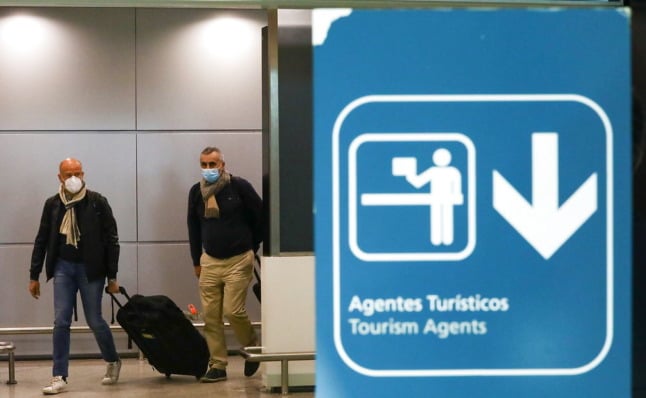The Danish foreign ministry yesterday eased its travel advisory for the Iberian country and now longer advises against non-essential travel to any area of Portugal. This is in line with low infection rates in Portugal and Lisbon’s own lifting of restrictions on Monday, which allowed tourists to enter the country.
Entry to Portugal still requires a negative PCR test taken within the last 72 hours.
International tourism has been severely curtailed during the pandemic for people who live in Denmark, while those with families in other countries have faced months on end without being able to see their loved ones in person.
Denmark’s requirement for travellers entering the country to quarantine for at least five days on arrival (with some exemptions) has been a significant factor in this.
The rule was introduced earlier this year in an effort to prevent infectious variants of Covid-19 from entering and gaining a foothold in Denmark.
But recent weeks have seen both Denmark and a number of other European countries, including popular destinations for tourists, ease travel restrictions.
Currently, the foreign ministry lifts its advice against tourism to regions or countries when the coronavirus infection rate of the destination falls below 50 cases per 100,000 residents over the last week. The ministry criteria also take into account the number of tests and test positivity rate.
Mainland Portugal currently has an infection rate of 23.9 per 100,000, according to ECDC figures. For islands Madeira and the Azores, the measure is 38.9 and 45.1 per 100,000, respectively.
In addition to Portugal, the Danish foreign ministry has also lifted its travel advice against tourism to Malta and parts of Spain including the Canary Islands and Mallorca.
READ ALSO: Denmark eases travel restrictions: EU tourists can now enter country



 Please whitelist us to continue reading.
Please whitelist us to continue reading.
Please take care of each other by getting vaccinated with both shots and help the planet too. Good truly loves u, pls stay safe and get both doses of the vaccine, after 2 weeks of the 2nd dose you’re fully vaccinated + keep using a mask to avoid any infections to unvaccinated groups you may carry from any previous infections. Eat and exercise healthy to not get any clots. Others and I too love u! Luke 14 :25-33 Forsake everything everyone and your life for JES
Luke 16 :13 Work for JES not $$$, and JES will give you also your family food and clothing if they follow too
Matthew 25 :34-36, Matthew 6 :3-4 and Luke 12 :33 Sell all you have and give to the poor and keep every giving in secret
Mark 16 :15 and John 17 :22 Share the Truth to all working together in love also peace
Revelation 13 :16-17 + 14 :9-11 Never take mark of the beast right hand or forehead only way to buy or sell ¤It is not a covid vaccine or a mask, may be microchip implant / quantum tech
Revelation 17 :15-18 + 18 :8-10 USA is most possibly the Babylon to be destroyed in 1 hour with fire